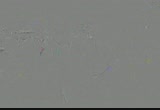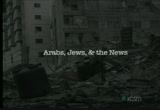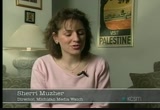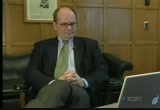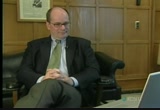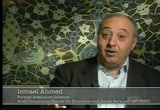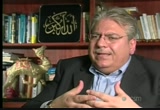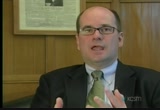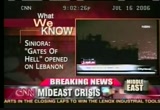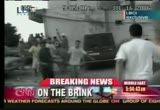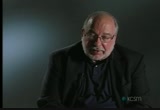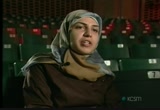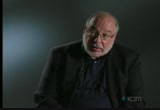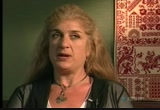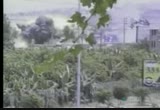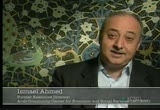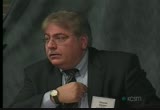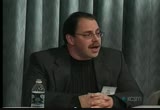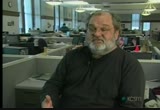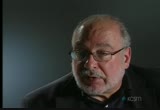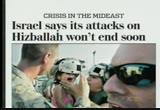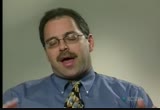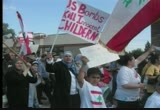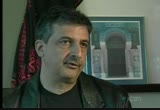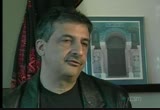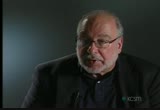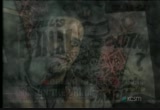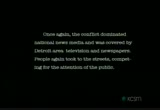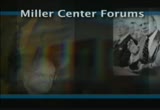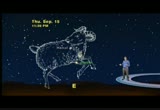tv Arabs Jews and the News PBS September 5, 2011 4:30am-5:00am PDT
4:30 am
4:31 am
none of us did. >> yes, israel was quite justified. >> chanting death to the jews. >> anti-semitic anti-jewish things being said and displayed at that rally. >> this is america. it's free speech. i think people should be allowed to say whatever they want. ♪ >> it's the summer of 2006. this is beirut, lebanon. this is haifa, israel. across a globe in michigan, this is dearborn. and this is southfield.
4:32 am
dearborn and southfield are suburbs of detroit. dearborn has the largest concentration of arabs outside the middle east. and southfield has a significant concentration of jewish people. and now that we're at war with each other, relations between the two communities at times reflect the tensions of the middle east. some of these tensions are covered in the local newspapers. >> last year we had an editorial that was published. it was published right on super bowl day in detroit. >> we are a right of center conservative page. >> and the editorial is on sunday, he says that -- that palestinians have lust for jewish blood. >> it was very critical of palestinians, but that's not the problem of being critical. it was dehumannizing them.
4:33 am
>> and describing palestinians as terrorists. >> same thing, they have a unique nature against self-interest >> and they're waiting for a moment, for the right moment to kill the jew. what type of a statement is this made by an editorial. what are you trying to say to the jewish community in here that watch the palestinians in the neighborhood because they're after you? >> well, that's a mischaracterization of anything i've said. i've never said all palestinians are terrorists. i've never spoken about the palestinian community in this country. >> just it was a very, very negative editorial that was not based on fact. >> i've been a supporter of a palestinian state. the newspaper is a supporter of a palestinian state. we don't believe the path to that state is a violent path. >> rather than people using
4:34 am
their pulpiting to promote understanding, what you're seeing is people building on that negativity. >> a perfect example of this kind of people who are vicious, malicious and he does not hide the fact that he is pro-israeli, anti-arab. >> how racist he is against the whole community. >> almost too absurd to address. but i'm anxious to respond to this. he's correct, i don't make any bones about where i assistant. i am pro-israeli. i'm anti-terrorist, not anti-arab. notice the disingenuousness there how he tried to take my position on the middle east, tried to extract that and apply it to the arab american community here which is total nonsense and it requires me to
4:35 am
question what his real motives are here. >> when you try to face nolan finley with the facts, that he is a racest individual that hates palestinians and arabs, he says, no, i have a friend in the arab community. >> nolan's a friend. i like him, i hate his editorials. >> the editorial staff tends to be very far away from the people that they're talking about, you know. you get -- especially in the conservative papers. you get a really negative cast. >> people today tend not to want to see the other person's opinion in the paper, and we make a very concerted effort to make sure folks see a broad range of viewpoints. >> i responded to nolan finley with a small paragraph.
4:36 am
it was not even published in the paper. >> and i don't recall his response, whether reran it or not. i know we've ran a number of letters from him. we've run pieces from his wife. we've not been shy about running the harshest criticism in response to our opinion. >> how could you fight something like the detroit news when you have somebody like this? i don't mind having an opinion, but at least open up. give the other people a chance. >> we do run a regular column from an arab american. we run a column once a month from a muslim iman from dearborn. >> i tend to believe that the exposure is the best thing. regularly supporting hezbollah which is saying nasty things
4:37 am
about jews and israel, anti-semitic columns published regularly by a contributor in the detroit news is problematic. >> i think our job is present as much information as we can in hopes that people will be better informed, more knowledgeable. approach this from an intellectual rather than an emotional standpoint. >> what troubles me is that nolan finley doesn't say that he's getting flack from the arab and muslim community. >> we're not going to mediate between the two communities. our job is provide information and we try do that as best we can. >> i can tell you right now if there was a voice out of the jewish community with those sort of opinions, we'd be going crazes is. we'd say why are you publishing him in who does he speak for. those don't represent our community. we're ashamed to have them. >> why do you run this column, anti-israel. why do you run that? we run it because it's a
4:38 am
viewpoint that many in this community have and it ought to have an opportunity to be expressed. we try to give everybody a forum, a place to have reviewing, have a community discussion. hope it's civil. and most of the time it is. >> the gates of hell opened on lebanon. that when the country's prime minister on the fifth straight day of israel air strikes and artillery fire. he said that before darkness fell. a long, loud night punctuated by more explosions in the city. >> the international media highlights conflict and doesn't highlight the daily drudgery of peace making. >> i'm just hearing emergency service vehicles, sirens coming past this area heading to the south of beirut where the
4:39 am
hezbollah strong hold is. that's where the main international airport is and that's what was struck late last night. >> israel claims it will turn us 20 years back if we don't return their two soldiers. >> the next morning we woke up at 6:00 in the morning to the bombing. >> also highlights things that are, quote, newsworthy, bombs that go astray rather than the real security issues that may be involved. >> according to lebanese, the lbc, 20 people were killed and 50 wounded in this attack on the southern city of tiaha bringing the casualty toll to 130 people killed and close to 300 wounded. >> as the bombs are coming in flying low and hard, the sound deafening, the building shaking to its foundation. i hear the neighbor hanna
4:40 am
screaming to her children fly, fly, fly down the stairs. >> so israel developed a strategy of holding lebanon responsible which is under international law for hezbollah's activities inside. after hezbollah wherever it was. >> this is an indication of the type of bombing that's going on in the southern suburbs of beirut. this building here did house hezbollah's radio station. but when you look around here, you can see there are a lot of civilians that live in this area. >> a lot of the footage does show what appears to be disproportionate destruction. but hezbollah hides its activities in civilian areas. it puts rockets in civilian areas. it puts its headquarters and communication command centers in civilian areas. and the only way israel could go after those places, especially relying too much on air power, was to wreak havoc on those areas. >> bombs are dropping like flies
4:41 am
on the land around the south. six bridges to date this minute, july 12th. here we are again. and my little, big heart is breaking. >> i lost the will to live. i was like, you know, god, i don't want to deal with this anymore. i'd rather just go ahead and die. i don't want to hear it anymore. i mean, of course, is a million times louder. it literally destroys your soul. >> i'm a victim of war. lived through it for ten years. made it out. i'm a survivor of war. i made it out again last summer. >> the army's coming. i can hear something but don't leave us with nothing like when they came knockin' back in 1948. i know you remember, ma, it's not too late. don't be sad, just wait.
4:42 am
don't be scared of the fate. >> 1975, 1982, 1990, 2000, 2001, 2002, 2005, 2006. >> hezbollah attacked across recognized international boundary. and it rained rockets in on civilian targets, whether arab villages in the north or jewish villages in the north. both those are acts of war. and the latter is -- that's recognized as a war crime, firing on civilian populations. so israel was justified in responding. >> israel react defensively and exclusive. the israel the only democracy in the region to support the jewish faith. full of hate. the air decadent. playing the victim, they perfected it. >> has gone through cycles with hezbollah.
4:43 am
we're not in a cycle now, we're in the war. we're determined the end of this war hezbollah will not be on our northern border. >> my view is, yes, israel was quite justified. being in israel at the time i can tell you there was a unified support. the more the war went on, the less effectively it was prosecute. there was concern and outcry about what was done was not done well. >> i never thought i'd see it again frankly. none of us did. we never thought it could -- and also we never thought it could be worse than what happened in '82. this put that to shame, i have to tell you. >> they were from dearborn according to the statistics from the state department and the u.s. embassy in beirut, 4,000 lebanese were visiting villages in the south. >> most attacks reported were in southern lebanon close to the israeli border. >> so the hostility caught them
4:44 am
in crossfire from israelis from one side and hezbollah from the other side. >> people saying look, my mother, my brother, they're under bombardment. we had really heart wrenching stories. >> the human cost of the war is rising. >> so there was a lot of collateral damage to the lebanese infrastructure to lebanese civilians which didn't appear very nice in the international press. it was condemnable. >> i remember speaking with a woman and her family on phone from lebanon who just went under, like just suffered this 48-hour constant bombardment. >> so we run into the entree way and i grabbed my mother's hands and she is shivering. the windows are shaking, the foundations are shaking and now i can see she's chewing the
4:45 am
inside of her lip. >> one out of three people in dearborn is an arab american. i will go further in that i say most of the one out of three from the arab community is lebanese and the vast majority, 90% of them are from a particular section in lebanon which is the south of lebanon where the hostilities were taking place. >> one woman lost seven people in her family. and there is a woman in this building right now who we couldn't convince that her grandmother and grandfather were dead until they dug them out of the rubble three weeks later. now, there are people in dearborn who have sent their kids there. this was not a story. the biggest story was 10,000 arabs demonstrating in dearborn
4:46 am
supporting hezbollah. >> we saw people at those rallies in leadership positions promoting hezbollah chanting for them and chanting death to the jews. and bringing in a leader of the hezbollah support group in one of the first rallies. >> i was there at the rallies in july and august. and i did not hear anyone says death to the jews. and if anyone who said it, they are wrong. they should not have said it. and those are individuals. there were 10,000 people, maybe someone was saying this in order to give those 10,000 people a bad name. but on the podium, the speaker, no one says death to the jews. >> i can see how a community would become very angry with that and rise up in protest and allow their ainge -- anger to
4:47 am
get out of hand. some people need to vent. >> some are pro hezbollah, pro nazrallah. they were holding up pictures of nazrallah. we had to report, say, look, this is what the people at the rally were saying and what they were saying concerned people in the jewish community. >> i wrote about those rallies. and, yes, i talked about coverage, support for hezbollah which was very significant to me. and i think to most americans with what hezbollah has done to americans. but i also included, and i certainly in the other media very much, about the emotionalism of the family connections. >> our main focus was pretty straightforward. i remember when they had 10,000 people in dearborn, it was a pretty straight story, there was 10,000 people and here's what they said. >> there was this outpouring of support for the hezbollah militias that stopped for the first time in history or in
4:48 am
recent history. the idea the israeli defense forces had now been stopped by the air bombing. and that air bombing is hezbollah. >> frankly i don't buy the whole line about hezbollah being a hundred percent a terrorist organization. just as i don't buy the line that all israelis are, you know, trying to kill palestinians and steal our land. >> what is hezbollah is the only provider of social and health services in southern lebanon to the oppressed. when they defend arab land against invaders, they hold a special place. >> hezbollah is part of lebanon. one-third of the lebanese people. this is not something that bunch of terrorists running around as don or someoneto portray. this is is not the case.
4:49 am
the case that hezbollah is the most popular party right now in the middle east, in the arab and muslim world. >> probably in dearborn, those segments of the community that rally behind hezbollah are rallying behind the group that says israel has no right to exist; that jews are akin to monkeys and apes; that they have a particular version of islam in which the jews are viewed in derogatory terms. and that's not a basis, especially in america where we have assumption about giving people equal mutual respect. that's not a basis for having a dialogue. >> we reported the chants, the cheering for, and the signs that support hezbollah. there were older residents of arab descent walking through the
4:50 am
crowd telling younger residents, you have a swastika on that flag. swastika is a hateful message not only to jews but to christians, to muslims and to others. get rid of that swastika and equating that with the state of israel. >> i thought we were fair, i thought we were balanced between the arabs and the jewish side. you know, sometimes people in the jewish community felt we were being too pro arab and pro muslim. criticized a lot being too far on the left. i think at least we try to keep in the middle. >> one of the problems that i see with the coverage of the middle east is that a lot of journalists think that objectivity means doing he said/she said and putting the two together in terms of a conflict and said we'll let the reader decide. the problem with that is that it
4:51 am
usually disregards like the factual background. for me journalists have to discover what the facts are. >> the international media picks up some things and misses other things completely. and i think in this particular case, it didn't do a very good job of putting the conflict into a larger context. >> it's interesting. sometimes if people, you think as turnists -- journalists are closer to the story and people popping in won't have it as clear. i think there's a desire of good and bad to manage community relations at the same time report a story. >> there's some natural public radio reports in the area in late august which i saw on both the jewish and arab communities. i thought they were pretty solid. >> for example, guy raz from npr popped into town and he reported things going on in the arab community. >> who is your army, these young
4:52 am
college-aged men chant. hezbollah they respond. who is your leader? nazrallah they say and many carried placards of the leader. >> raz said there was a thousand people chanting that in the streets of dearborn. >> in nearby dearborn, home to a large community of lebanese immigrants, protest rallies against the israeli invasion of lebanon happen daily. many have slogans comparing israel to nazi germany. it's rhetoric like that training long-standing ties between detroit ace jewish and arab communities. >> those are real issues and i don't think it's up -- i think it's to the media to report those sort of things. we'll do it as a jewish news in order to file it in because our community's concerned about it but i think it's a concern of all of us.
4:53 am
>> one of the things being arab, americans don't understand us. >> i think the americans are the most educated in the world and the least educated about the word. >> i had a lady come up to say i can't believe you abandoned your christian faith to become an arab. (laughter) (applause) >> and i think that's reflected in how the media covers stories. the more complicated a story, the more i think audiences are pat tronnized. >> i think we like to simplify and make things a little more home genius or easy to manage than in fact where we are. >> i know that journalists are supposed to cover events, currents events. academics can do history and that kind of thing. >> the middle east is a complicated story and i don't think the media does a good job. >> the problem is our population
4:54 am
is so uninformed about history that i feel like media have a special responsibility to actually talk about and understand that history. >> we talk about arabs as if they're a singular community. and i think that probably doesn't fit the reality. >> it's very hard, you know, because the arab community is very diverse, like 22 different arab countries. you know, when you say the word arab, it sounds so monolithic but the truth is we're very different. and i'm understanding those differences i think can explain the political challenges that they might be writing about. >> don't go to fox, don't go to cnn to figure out what arabs think. talk to an arab. >> talking about real live human beings. >> i think there are some things that unite jews and arabs. >> real human beings. not types. not the types -- not stereotypes, the real flesh and blood human beings. >> growing up arab american,
4:55 am
time to reminisce and go down that road again. >> both communities come from immigrant origins. that meant everybody has begun as on outsider. >> i was calls called between two different words, mixed up in a multiethnic swirl. >> they're around us and wanted to know what i was. no matter what we do in this country they want to know who we are and what we are. >> strangers in the land. everyone is confronted with discrimination, stereotyping. >> what are you? i said what do you mean? i'm an american. they say no you're not. >> he was hard to discover with asimulation arabs being smoothered. >> everybody has confronted the challenges of being american and deciding what that meant, what combination of ethnic identity and american identity that would mean. everyone struggled to make it in america. that's something that binds both
4:56 am
communities. you have dialogue with people who say death to the jews. but you dialogue with people who recognize in other people, hey, we were immigrants. we were discriminated against. we share common problems of making it in an economy like michigan which is not doing too well. those are the ways you find dialogue, bases for dialogue and bases for recognizing the humanitity form of it. >> the question for, can you answer it please. ♪
173 Views
IN COLLECTIONS
KCSM (PBS) Television Archive
Television Archive  Television Archive News Search Service
Television Archive News Search Service 
Uploaded by TV Archive on

 Live Music Archive
Live Music Archive Librivox Free Audio
Librivox Free Audio Metropolitan Museum
Metropolitan Museum Cleveland Museum of Art
Cleveland Museum of Art Internet Arcade
Internet Arcade Console Living Room
Console Living Room Books to Borrow
Books to Borrow Open Library
Open Library TV News
TV News Understanding 9/11
Understanding 9/11